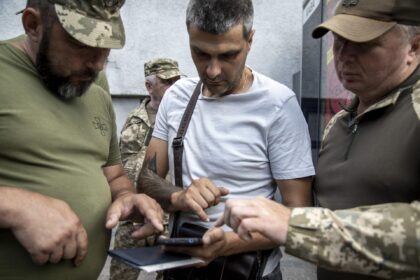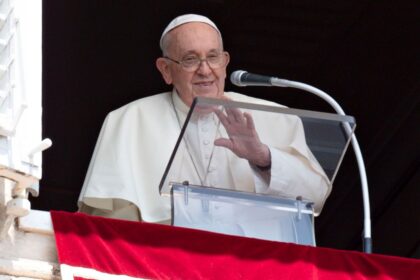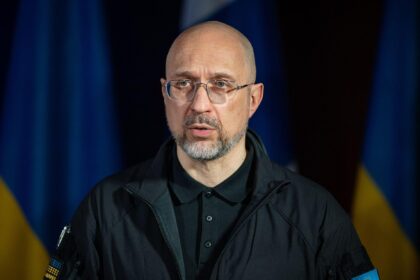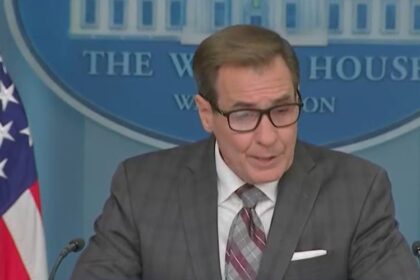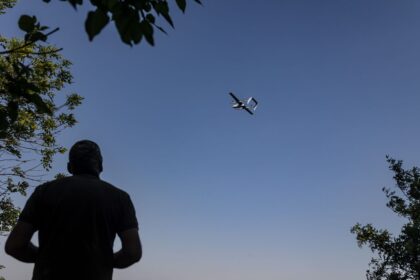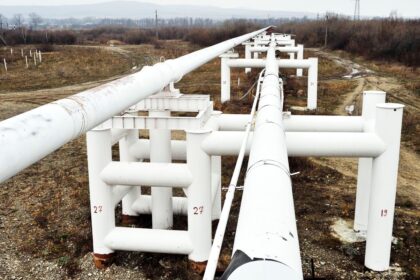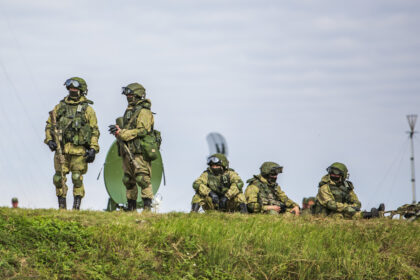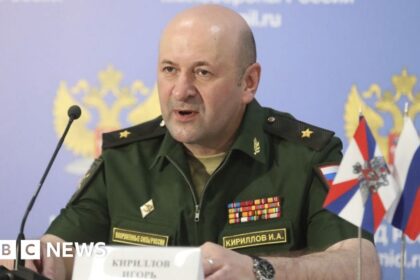**Russia Threatens to Counter NATO Exercises in Lithuania**
Moscow sees the recent NATO military exercises in Lithuania as a direct threat and is preparing to take measures to neutralize all efforts aimed against it. This was stated by Russian Deputy Foreign Minister Alexander Grushko, according to reports on May 12.
The allied Strong Shield 5 exercises have begun in Lithuania, with troops, ships, and aircraft participating from May 12 to 18 in the Panevezys district. The country will also host a large-scale NATO exercise, Thunder Fortress 2025, involving around 8,000 troops, dozens of ships, and aircraft.
**Russia’s Counter-Measures**
According to Grushko, Russia is creating two military districts and a tank corps in Karelia, northwestern Russia, to counter NATO’s efforts. He claimed that the allied exercises are aimed at “deterring Russia” and “preparing the alliance for a possible military conflict.” Grushko warned that Moscow will take necessary measures to neutralize these attempts to project force against it.
“The interests of our security and defense capabilities will be guaranteed,” he added, as quoted by TASS.
**Growing Tensions in the Baltic Region**
This development comes amidst growing tensions between Russia and NATO. The Baltic states, including Latvia, Lithuania, and Estonia, have been on high alert since Russia’s full-scale invasion of Ukraine began. These countries share a history of Russian aggression and occupation.
As a result, they have agreed to build a Baltic defense line in the coming years to strengthen their eastern border with Belarus and Russia. Lithuania has also blocked and fortified a bridge over the Neman River, linking it to Russia’s Kaliningrad enclave.
**Consequences for Europe**
The increasing threat from Russia is causing European countries to review their defense budgets and modernize their militaries. The uncertainty over the U.S. role in NATO has only added to the growing unease among member states.
“This situation highlights the need for Europe to strengthen its military capabilities and work together to ensure collective security,” said a spokesperson for the European Union.
As the conflict between Russia and Ukraine continues, the stakes are high for the entire continent. The potential for escalation is always present, and it’s crucial that all parties take steps towards de-escalation.
**Commentary**
Russia’s move to counter NATO exercises in Lithuania reflects its increasing assertiveness on the global stage. Moscow sees these exercises as a direct threat to its national security and is preparing to take measures to neutralize them.
However, this approach only serves to further escalate tensions between Russia and NATO. The Baltic states are right to be concerned about their safety and security, given their history of Russian aggression and occupation.
Ultimately, the situation highlights the need for diplomatic efforts and dialogue to resolve conflicts peacefully. It’s crucial that all parties work towards de-escalation and find a mutually beneficial solution.
**Analysis**
The situation in Lithuania reflects a broader trend of growing tensions between Russia and NATO. The increasing threat from Moscow is causing European countries to review their defense budgets and modernize their militaries.
However, this development also presents an opportunity for the West to come together and strengthen its collective security. By working together and sharing intelligence, member states can ensure that they are better prepared to face any potential threats.
The Baltic states have shown great resilience in the face of Russian aggression, and it’s crucial that their efforts to strengthen their defense capabilities are supported by the international community.





